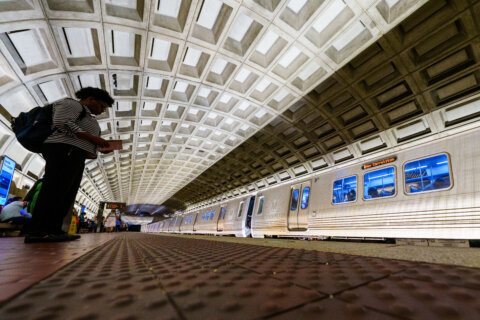WASHINGTON — D.C.’s chief financial officer says a proposal to guarantee paid family leave to people who live and work in the city is too expensive.
The bill as written would provide the nation’s most generous paid leave benefits to District residents. It would mandate 16 weeks of paid leave for the birth of a child, a medical condition or caring for a sick relative. People who work in D.C. but live elsewhere would also receive the benefit.
The proposal calls for a 1 percent payroll tax on businesses to pay for the benefit, but federal workers who live in D.C. could have to pay the tax themselves. Federal workers who commute from Maryland or Virginia would not be a part of the program.
Chief Financial Officer Jeffrey DeWitt said in prepared remarks to the D.C. Council on Thursday that such a tax wouldn’t bring in enough money, and the District can’t pay for shortfalls.
For the bill to become law, the CFO has to certify that it won’t negatively affect the city’s finances.
During the public hearing, D.C. Council Chairman Phil Mendelson said that “so far, the folks who are saying this bill’s going to be very costly are winning,” even as he acknowledged that supporters of the bill made their case that it would give workers much-needed stability and promote gender equality.
According to numbers from the Institute for Women’s Policy Research, the measure would bring in about $445 million per year, while paying out $267 million. However, economist and Georgetown professor Harry Holzer told council members that, according to his estimates, “You would have a shortfall in the fund, every single year, of about a billion dollars.”
While saying the Bowser administration supported the concept of paid leave, City Administrator Rashad Young suggested taking a more measured approach, and studying the issue further.
“An unintended consequence of this bill could be slower, or negative, job growth in the District,” he said.
For workers taking leave, the proposal would give them 100 percent of their wages for amounts up to $1,000 per week, and 50 percent of their wages above that amount, with a weekly cap of $3,000.
Another public hearing on the bill is set for Feb. 11.
The Associated Press contributed to this report.








